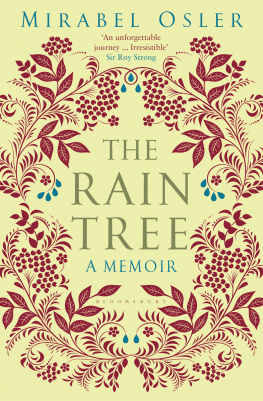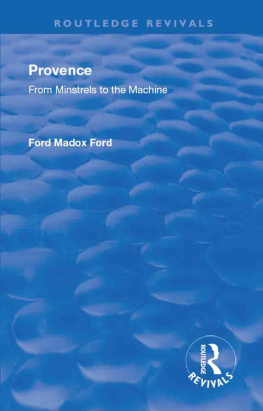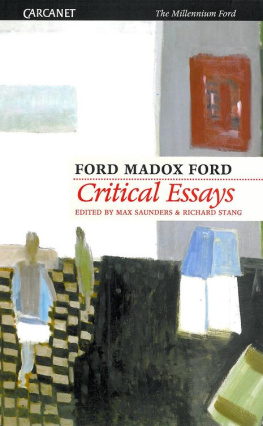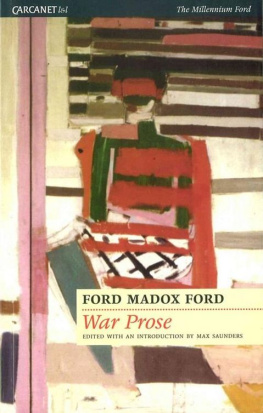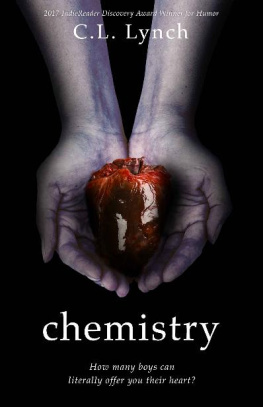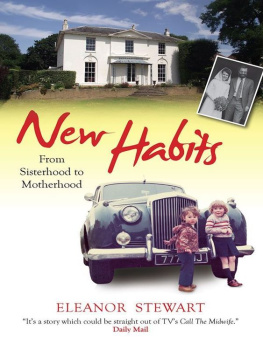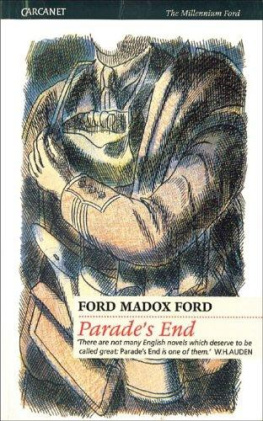The Rain Tree
A Memoir
Mirabel Osler

To the new friends indispensable and generous, and theyll know who they are who have surprised and delighted me in old age.
The arbre pluie gets its name from the sound of
rain falling through the folded leaves at nightfall...
Contents
I have just been to seek out a shroud. Theres a young woman who makes environmentally friendly felt shrouds decorated with leaves. Sounds lovely. Sounds suitable for me. For the way I think. Ive never believed in an afterlife. Never had the comfort from faith in a divine being concerned with each one of us God wont let me. Instead, not believing in immortality, I find solace in contemplating space: that tempting void without significance. Considered against infinity, how can we be anything but disintegrating dross floating through time?
Anyway if Im wrong, how is there no answer to the classic question: Why is a lightning conductor necessary on a church?
Edmond de Goncourt when discussing immortality with Alphonse Daudet said, We are mere ephemeral gatherings of matter. That is how I feel. Im a nothing agnostic if a label is needed and because I want to save my children from coping or feeling guilty if they dont send me off with a fanfare, or in theatrical splendour, I decided to get the practicalities sorted. A felt shroud or cardboard coffin would suffice.
To evaporate like dew at sunrise would be my aim, but life isnt like that, nor seemingly is death.
This isnt an autobiography but a paean to friendship. Janus-faced, looking both ways love and death, ends and beginnings the unavoidable human apophthegm of those who mattered in my life before I was a sentient being. I write of the upside to old age in spite of loss of faculties and physical prowess, or of the necessity of making lists, of repeating a word aloud so that I havent forgotten by the time I reach the top stair.
As a non-believer with nothing to hang on to, I write of the compensations, the unexpected liberations and friendships I have not anticipated as Ive grown older, in a series of seven episodes the fifth being the reason for the books title or parts of my life as I jump about like a grasshopper on speed between loss, writing, gardens, friendship, food and grief; Europe, Asia and finally, today, facing the edge.
The taproot is mine, and although I begin with a few pages on gardens, its the accumulated letters, diaries and photographs that are the catalyst in an attempt to leave my children some sort of background to where theyve come from. The chapters, not in chronological order, are disparate chunks of recollections prompted by a letter, painting or photograph of the people and the overlapping lives of those who have been germane to me and my family in England, Thailand and Greece.
My past is the shadow I cant avoid. Now in old age, through corridors of memory these people still reverberate.

The act of shared gardening, not the garden, was what mattered when my husband Michael and I returned to our house in England after years of living abroad. We had no intention of making a garden. Certainly not anything that imposed sophisticated geometry on the landscape. Rather, as though we were painting colours and shapes on a vast canvas, we were drawn into an activity where neither of us had been before.
Our intuitive feelings had grown from nowhere cerebral, nowhere ambitious. They came from standing about ruminating on our stream, the undulating land, fruit trees long past their use, sheep grazing in meadows beyond our boundaries. Design hadnt come into it, nor had horticultural wisdom, and that holy cow of gardening lawns was non-existent. All that was needed was a light touch where sporadic blotches of floral enhancement seduced both nose and eye, where old roses followed the contours, bulbs appeared among unmown grass, and primulas, irises and ferns grew beside water.
Unintentional, arbitrary, were our spontaneous responses as we succumbed to what was surrounding us. How could a tug at our primeval senses not tempt us to scatter a few plants about the place? At least thats how we began. With no plan or know-how. Stone, water, bulbs, trees and roses were to be our ingredients with the built-in proviso that we could leave it all for little bouts of travel.
Idiots! Slowly, surreptitiously, we were coerced. We had no idea we were moving into a world of blackmail where on a summers day, slumbering among bees and an infusion of scents from the shrub roses, a coil of bindweed throttling a hollyhock threatens all thought of inertia. I call it floral blackmail. And thats why, when I used to visit and write about gardens, I knew instantly if they were the work of proper or improper gardeners. Proper gardeners dont sit. They cant. They have a couple of benches one on the patio, another beside the water feature from where, in less than a minute, they catch sight of some neglected chore and involuntarily spring up to make amends. Once up they keep going. The improper type, however, have seats scattered about the place like a beckoning finger offering hospitality and unrestricted idleness.
I started writing about our garden through no volition of my own; it just happened. I found that the process of grubbing about in verdant corners provoked thoughts that had nothing to do with me. Unprompted, they rose to the surface from some deep source of stillness: lightweight or puzzling. Ever since Id first picked up a spade Id felt an undertow to gardening, like the statue in the rock waiting to be hewn by the carver. The enigma lay quiescent, yet impossible to ignore.
On scraps of paper kept with a pencil in my pocket, I wrote them down. Abstract or trivial the layers of geology that had gone to make a tree; how pointless it is the way gardeners devote hours to something thats entirely perishable; how like a rosary of stones was the arrangement of pebbles Id put around the thick stems of Lewisia s to protect their necks from winter wet. And as time passes unlike food past its sell-by date or lines on a face a garden goes out in triumphant florescence.
Think too how few gardeners exult: we meet, commiserate and complain. Only in June did I encounter people who spoke with rapturous buoyancy about the beauty of their gardens. The rest of the year we spend apologising. Cooks hold their tongues, never admitting that the sauce shouldnt be like this or the soup is really from Neals Yard, but gardeners only say, You should have seen it last week. Other things intrigued me as I moved among the roses: the tyranny of birds. Nesting close to the house just where I wanted to work, their black eyes would watch me. Intimidated, they annexed my territory, forcing me into a Groucho Marx crouch in an effort to keep below their eye level.
Lurching was what Michael and I did. Inconstant, erratic or just pure foolhardy: wild and unstructured, the place evolved. Through mutual cohesion our commitment burgeoned but we hadnt intended to be taken over this way.
Whatever the pundits advised, however fashions changed from white gardens, to grasses and gravel, to exotic rarities or Japanese gardens roses never lost their bloom. A rose-red city half as old as Time, as Walter de la Mare described Petra, was just one of the childhood rosy recollections we shared:
... Oh, no man knows
Through what wild centuries
Roves back the rose.
For us, Michael and me, they became of primary importance after wed visited a rose nursery in full spate. All their flowing, tumbling effect, their huge loomy mounds and the porcelain perfection of single-petalled blooms took precedence over herbaceous borders or lawns.
Next page
